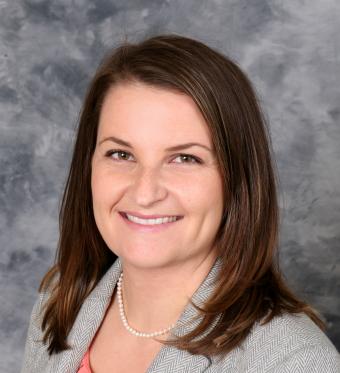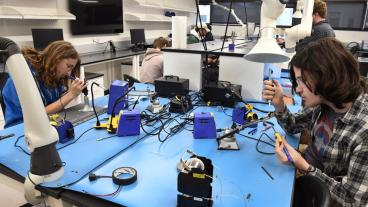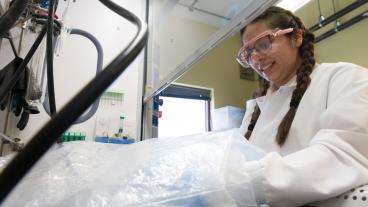
Nanette Boyle, assistant professor of chemical and biological engineering at Colorado School of Mines, has been selected to participate in Scialog: Negative Emissions Science, a new initiative bringing together more than 50 early-career scientists from the U.S. and Canada to tackle the pressing challenge of greenhouse gas accumulating in Earth’s atmosphere and oceans.
The multidisciplinary group of Scialog Fellows – with backgrounds in chemistry, engineering, materials science, physics and more – will meet annually for three years with 10 distinguished scientific leaders acting as facilitators. The goal is to identify bottlenecks, find avenues for breakthroughs and build new scientific teams to pursue promising ideas related to the removal, utilization and sequestration of greenhouse gases.
“I am honored to have been selected to be part of this cohort of early-career faculty with a common interest in the reduction of carbon emissions," Boyle said. “My research focus is on the use of biological systems, mainly algae, to convert carbon dioxide into biofuels and bioproducts so the topic of negative emissions is very closely aligned.”
Scialog is short for “science” and “dialogue.” Co-sponsored by the Research Corporation for Science Advancement (RCSA) and the Alfred P. Sloan Foundation, Scialog: Negative Emissions Science will kick off with a virtual conference on Nov. 5-6.
Boyle, who joined the Mines faculty in 2013, received her PhD in chemical engineering from Purdue University. Her work at Mines focuses on genome engineering approaches – synthetic biology, systems biology and metabolic engineering – to designing photosynthetic organisms capable of sustainably producing fuels, feedstocks and fine chemicals.




